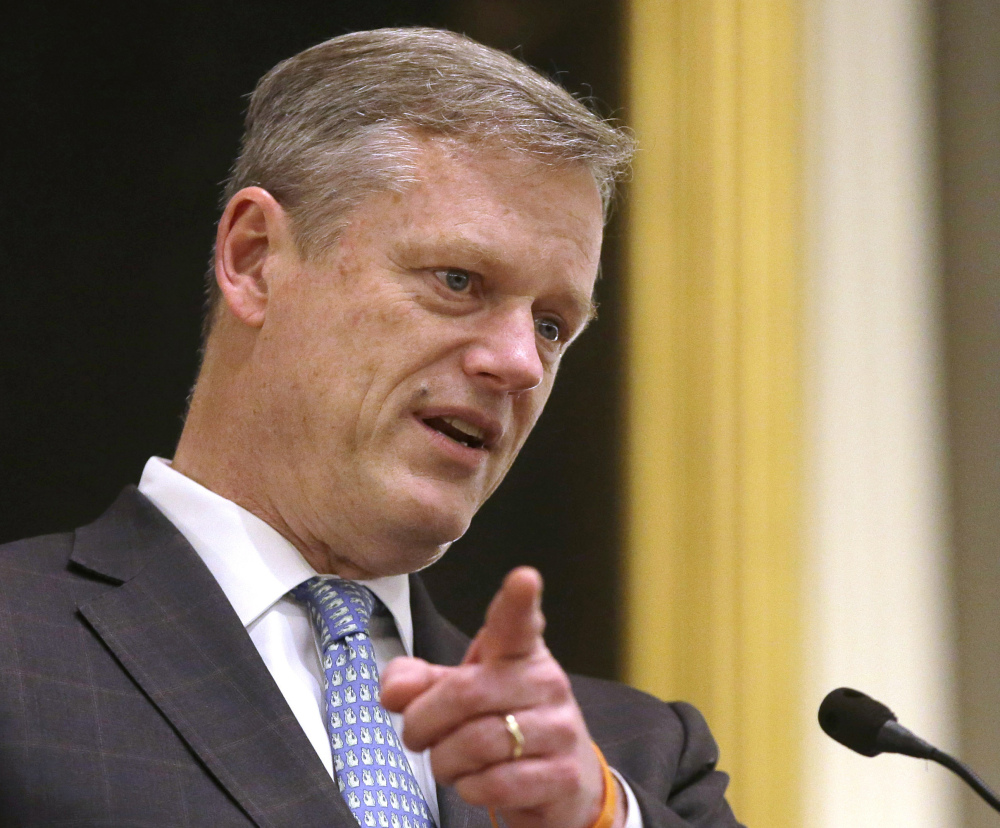BOSTON — Massachusetts lawmakers approved a compromise $40.2 billion state budget Friday that reduces spending levels to account for lower expectations for tax revenues.
The budget trims spending about $400 million to $500 million from spending plans previously approved by the House and Senate and takes other steps to account for a $733 million reduction in anticipated tax revenues for the 2018 fiscal year that began July 1, according to summaries provided by legislative budget writers.
The House approved the spending plan on a 140-9 vote, followed by the Senate, which backed the same budget by a 36-2 vote.
Democratic Senate Ways and Means chair Karen Spilka said the budget increases spending on schools and local aid, but cuts spending in other areas.
“This budget is not without pain,” Spilka said. “It is clear that the state is facing a shortfall in revenue that will have an impact on real people’s lives.”
Democratic Senate President Stan Rosenberg called it “the harshest state budget since the last recession.”
Spilka said the budget rejects a proposal unveiled last month by Republican Gov. Charlie Baker to rein in Medicaid costs, saying it doesn’t have what she called “necessary transparency.”
The budget does, however, include a proposal by Baker to create a temporary employer contribution to help ease the cost of public coverage for workers, Spilka said. That plan calls for a two-tiered approach that builds off of the existing employer medical assistance contribution and would help bring in $200 million in new revenue during the 2018 fiscal year.
The budget also factors in $250 million in recent health care savings Baker said he was able find.
The compromise also sets aside $2 million for a state marijuana commission aimed at moving forward with the voter-approved law legalizing the recreational use of pot in Massachusetts.
Passage of the budget could also lead to resumption of negotiations between the House and Senate on a proposed overhaul of the marijuana law. House Speaker Robert DeLeo suspended talks earlier this week, saying he wanted lawmakers to focus on budget talks.
Another item that failed to make it into the final spending plan was a proposal by Baker to impose the state’s hotel tax on Massachusetts property owners who rent out rooms for more than 150 days a year using online lodging services like Airbnb. The tax could resurface, however, as part of a broader plan to regulate the industry that is now being crafted by another legislative committee.
The 327-page budget document was filed on Friday morning, giving rank and file members only a matter of hours to review it before scheduled up-or-down votes in both chambers.
Senate budget officials say the plan projects tax revenues to grow at just 1.4 percent, down from a previous estimate of 3.9 percent growth.
Baker will have 10 days to review and sign the budget and issue any line-item vetoes.
Massachusetts was one of a handful of states that failed to have a new budget in place for the start of the fiscal year. The state avoided the type of rancorous government shutdown seen in other states, such as New Jersey, thanks to an interim $5.2 million budget that was approved last month.
Noah Berger, president of the Massachusetts Budget and Policy Center, said the revenue shortfall forced lawmakers to abandon some initiatives they had proposed in earlier versions of the spending plan.
“Unfortunately, this budget does not even begin to make the kind of major long-term investments that would improve our economy and quality of life by expanding educational opportunity for all of our young people and enhancing our failing infrastructure,” Berger said in a statement.
The organization supports a proposed constitutional amendment, expected to go before voters next year, which would impose an additional 4 percent surtax on any portion of an individual’s annual income that exceeds $1 million. Revenue from the so-called millionaire tax would be earmarked for education and transportation.
Send questions/comments to the editors.



Success. Please wait for the page to reload. If the page does not reload within 5 seconds, please refresh the page.
Enter your email and password to access comments.
Hi, to comment on stories you must . This profile is in addition to your subscription and website login.
Already have a commenting profile? .
Invalid username/password.
Please check your email to confirm and complete your registration.
Only subscribers are eligible to post comments. Please subscribe or login first for digital access. Here’s why.
Use the form below to reset your password. When you've submitted your account email, we will send an email with a reset code.